Southern London to Brighton commuters stage protest
- Published
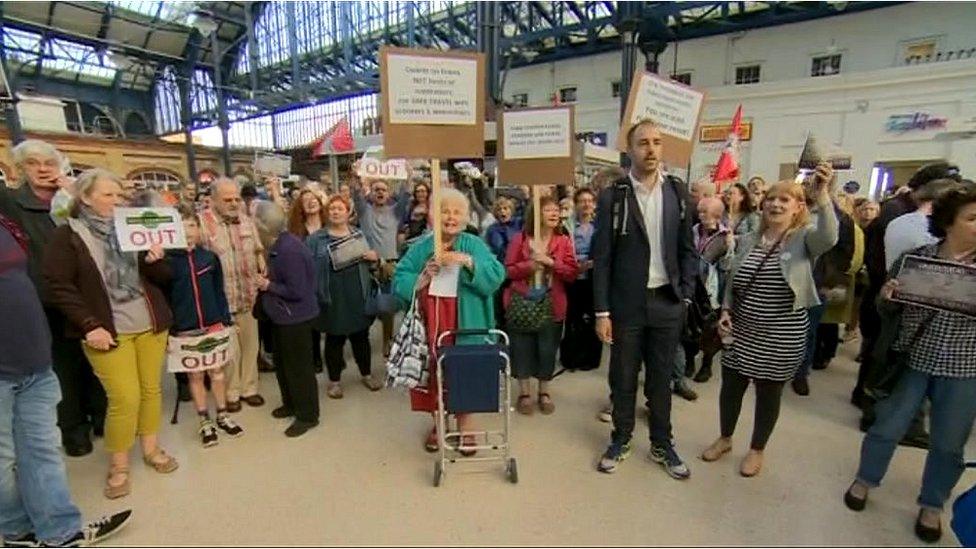
Commuters staged a protest at Brighton station on Tuesday night
Commuters using Southern's London to Brighton rail services have staged a protest over continuing disruption as another strike on the network looms.
One woman said her 70-minute commute was three hours every night last week. Another woman, six months pregnant, said hers took four hours.
Croydon South MP Chris Philp said one of his constituents had lost their job.
Southern, which is in dispute with the RMT union, said it was operating under difficult circumstances.
Other commuters described being "turfed off trains", left with no social life, seeing two services cancelled in a row, seeing their work suffer and feeling "incredibly stressed" and "utterly powerless".
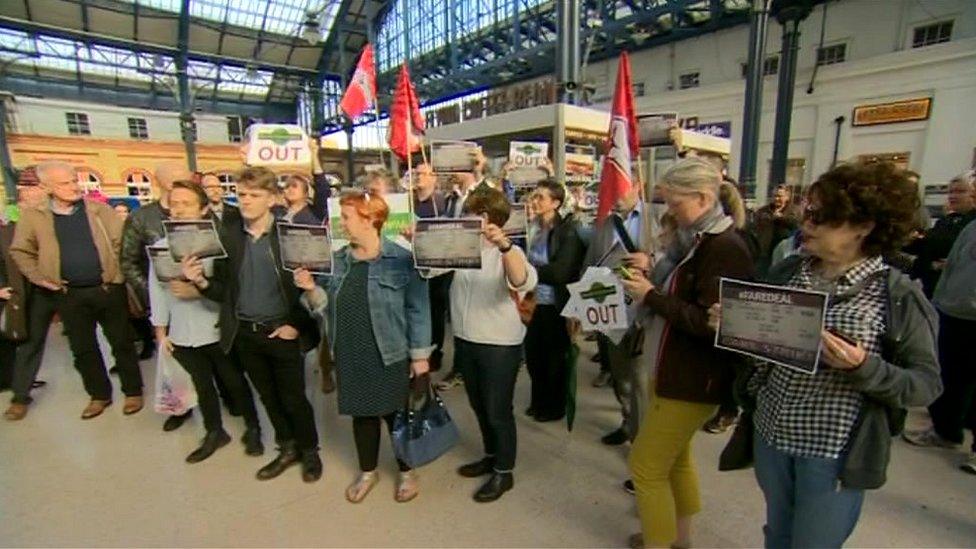
A further strike has been planned
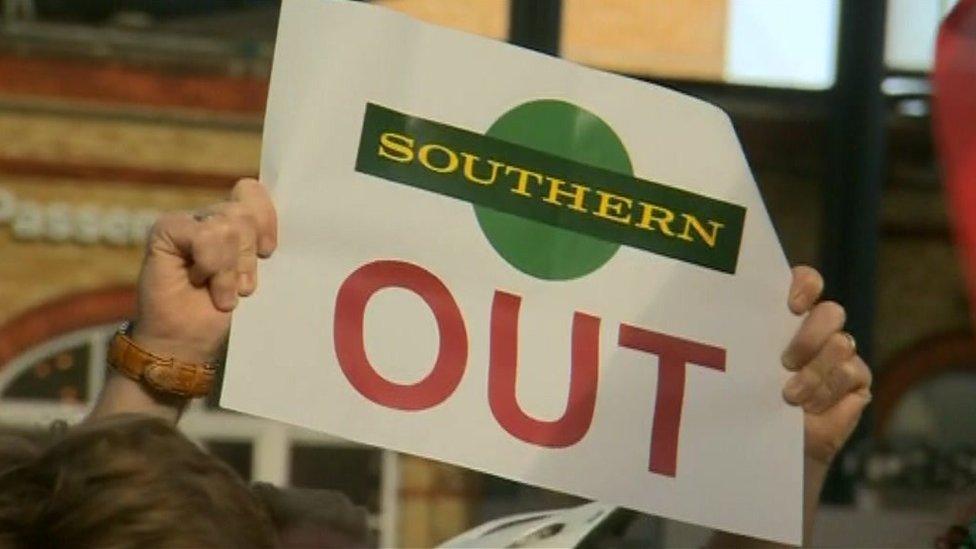
Commuters described three and four-hour journeys
The union is in dispute with Southern over the introduction of driver-only trains on which guards will no longer open and close doors.
'Should lose franchise'
Mr Philp said: "It's a combination of GTR [Govia Thameslink Railway], the franchise holder of Southern, who have been doing an appalling job not just in the last few weeks, but over the last two years.
"This has been the worst-performing railway network in the country and it's been getting worse and I think they should actually lose the franchise."
However, the Conservative MP added: "GTR have done a terrible job running it but the RMT union are also at fault."
He said the next planned strike was totally unnecessary and added: "No-one's going to lose their job."
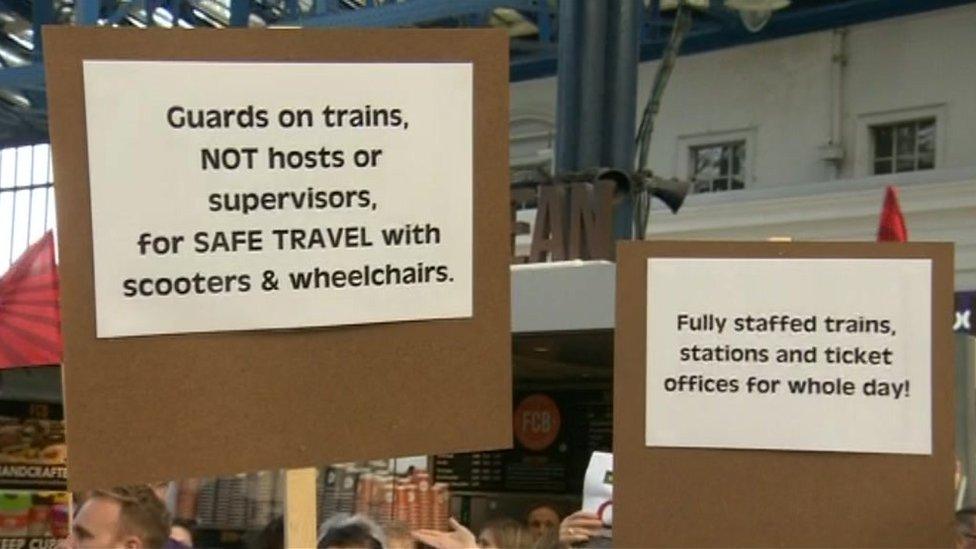
The dispute is over the role of guards
The RMT, which has planned its next strike for Tuesday, argues that guards are vital for safety and the dispute is not about operating doors.
Amid claims that increased staff sickness is a form of unofficial strike action, the RMT blamed staff shortages on "gross mismanagement".
A statement from GTR said: "We are doing our best to run as many trains as possible under very difficult circumstances.
"Every train that is cancelled costs us a significant financial penalty."
The rail operator has repeated its call for the RMT to engage in talks.
- Published14 June 2016
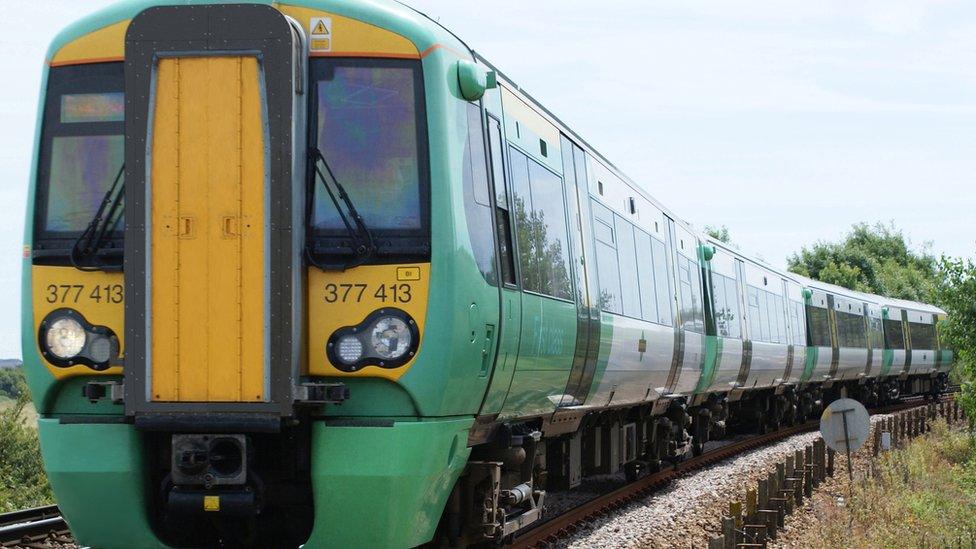
- Published25 May 2016
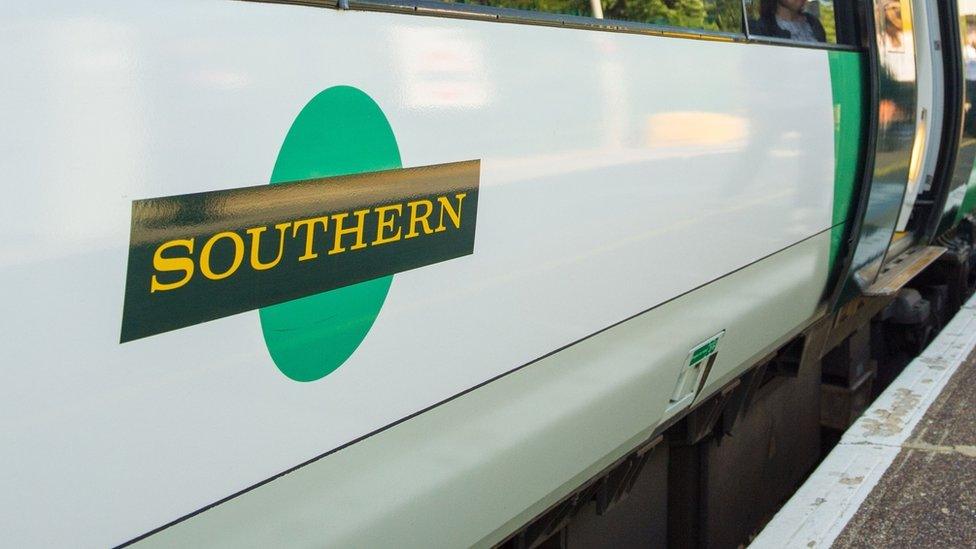
- Published31 May 2016
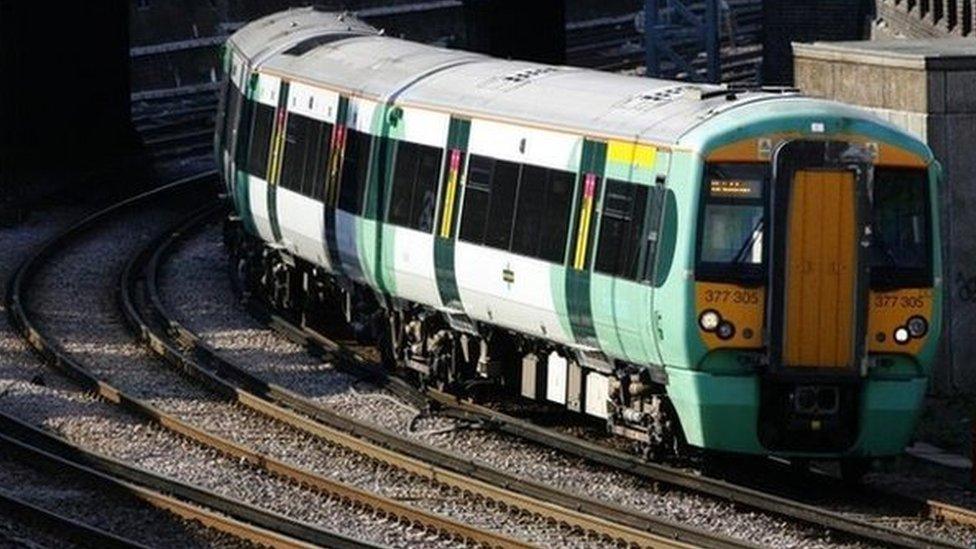
- Published6 June 2016
